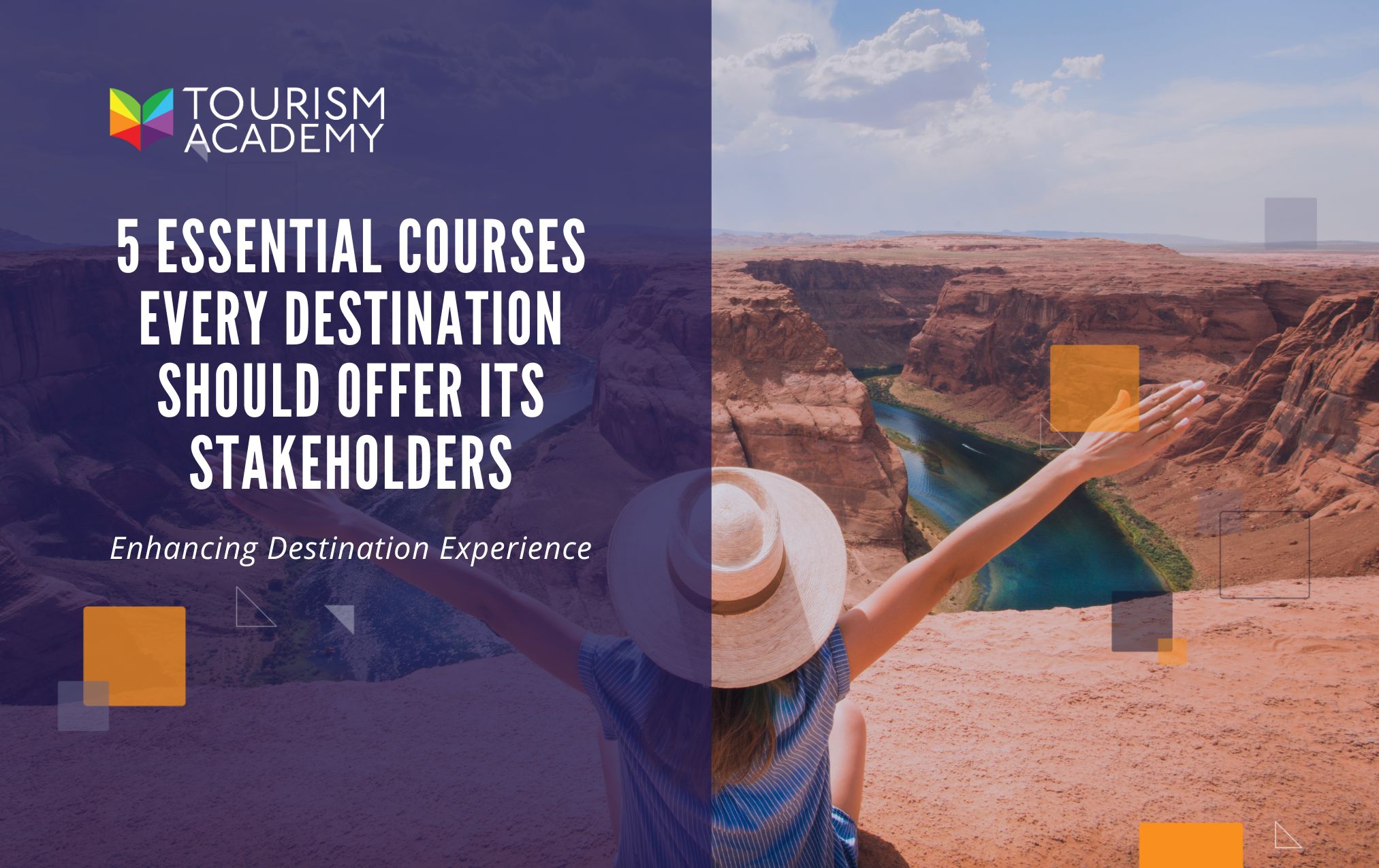
5 Essential Courses Every Tourism Destination Should Offer Its Stakeholders
In the dynamic world of tourism, destinations thrive when all stakeholders are equipped with the necessary skills and knowledge to provide exceptional experiences. From business owners to frontline workers and community members, each plays a crucial role in shaping the visitor experience. Here are five essential courses that every destination should offer its stakeholders to foster stewardship, enhance service quality, and create inclusive and sustainable tourism practices.
-
Stewardship Training for the Business Community:
Successful destination management requires a commitment to sustainability and responsible practices. Stewardship training empowers business owners and managers to implement strategies that minimize environmental impact, preserve cultural heritage, and contribute positively to local communities. Topics covered may include waste management, energy efficiency, cultural sensitivity, and community engagement. By instilling a sense of responsibility and stewardship, this course helps businesses align their operations with the principles of sustainable tourism, ensuring long-term viability and resilience. -
Service Training for Front-line Workers:
Front-line workers are the face of a destination, shaping visitors' perceptions and experiences through their interactions. Service training programs focus on equipping staff with the skills and knowledge to deliver exceptional customer service, cultivate empathy, and handle challenging situations with professionalism and grace. Training modules may cover communication techniques, cultural awareness, conflict resolution, and crisis management. By investing in the professional development of front-line workers, destinations can elevate service standards and foster positive guest experiences, leading to repeat visits and positive word-of-mouth promotion. -
Product Training for Travel Agents & Advisors:
Travel agents and advisors play a pivotal role in shaping travelers' itineraries and experiences. Product training courses provide travel professionals with in-depth knowledge of destination offerings, including attractions, accommodations, activities, and local experiences. By gaining a comprehensive understanding of the destination's unique selling points and niche markets, agents can tailor recommendations to match travelers' interests and preferences. Additionally, product training may include updates on new attractions, partnerships, and developments within the destination, enabling agents to stay informed and offer up-to-date advice to clients. -
Advocacy and Impact Training for Community Members:
Communities are integral stakeholders in the tourism ecosystem, and their support is essential for the industry's sustainability and growth. Advocacy and impact training programs engage community members in discussions about the benefits and challenges of tourism, encouraging dialogue, collaboration, and collective action. Participants learn about the economic, social, and environmental impacts of tourism on their community and explore strategies for maximizing benefits while mitigating negative consequences. By fostering a sense of ownership and empowerment, this training empowers communities to actively participate in destination management and advocate for policies that align with their interests and values. -
Training to Create Inclusive Welcomes for All Visitors:
Inclusivity is a fundamental principle of responsible tourism, ensuring that destinations are welcoming and accessible to all travelers, regardless of their backgrounds, abilities, or preferences. Training programs focused on creating inclusive welcomes provide stakeholders with the tools and knowledge to cater to diverse visitor demographics sensitively. Topics may include accessibility standards, cultural competency, LGBTQ+ sensitivity, and serving guests with disabilities. By embracing diversity and fostering inclusive practices, destinations can enhance their appeal, expand their market reach, and create enriching experiences for all visitors.
Investing in comprehensive training programs for destination stakeholders is essential for fostering stewardship, enhancing service quality, and creating inclusive and sustainable tourism practices. By equipping businesses, workers, travel professionals, and community members with the skills and knowledge to thrive in the tourism industry, destinations can ensure memorable experiences for visitors while safeguarding the environment, preserving cultural heritage, and benefiting local communities.
In delivering these essential courses, our online learning management platform harnesses the power of instructional design, organizational psychology, and subject matter expertise to tailor each training program to the unique needs and characteristics of the destination and its community. Through meticulous instructional design, we ensure that course content is engaging, interactive, and relevant, maximizing knowledge retention and application. Our understanding of organizational psychology enables us to design training experiences that inspire motivation, foster collaboration, and promote behavior change among stakeholders. Moreover, our deep subject matter expertise in tourism, sustainability, and community development allows us to incorporate best practices and real-world examples that resonate with participants, facilitating meaningful learning outcomes. By leveraging these resources and expertise, our platform empowers destinations to cultivate a culture of continuous learning and improvement, driving positive change and sustainable development in the tourism industry.

Leave a comment